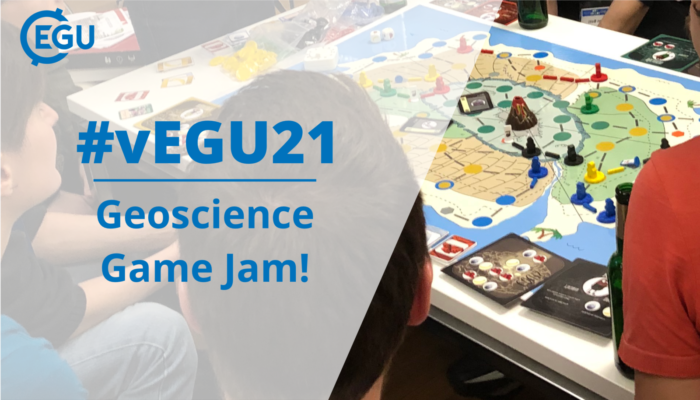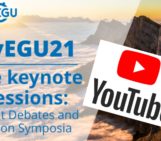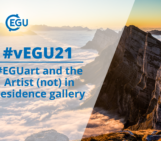
This year once again the EGU General Assembly of 2021 will be going online, however unlike in 2020, for vEGU21 the Programme Committee, Council and other organising members have much more time to prepare this year. So in follow up to last year’s online stream of our very popular EGU Games Night, for 2021 we are delighted to introduce the EGU Games Jam – co-ordinated by the EGU Games for Geoscience team! The deadline for submissions to the Game Jam is 31 March 2021.
The abstract deadline for this year’s meeting of the European Geosciences Union (EGU) has passed. The Games for Geoscience crew are all very excited to be hosting our fourth science session at the meeting and we have a great line up of brilliant presentations to be shared. We are also desperately sad we can’t meet face-to-face, stuff said faces with kasekrainer, and wash it down with a glass of Sturm* in beautiful Vienna. Last year’s virtual Geoscience Games Night was a decent ‘sticking plaster’ but with more time to prepare we want to do something far better in 2021.
The first piece of good news is that there will be an interactive, social Geoscience Games Night. In fact, there will be two in order for people in different timezones to participate. We will have more details on these closer to the meeting.
The second piece of good news is that we will be hosting an EGU Games Jam. In fact, there will be two! Covering analogue (table, card, board games etc) games, we have the EGU Games Jam and for videogame entries, we have the EGU Videogame Jam. Both will be open to submissions at the start of February and will close at the end of March, followed by a period of public voting, with the top entries featured during the main EGU meeting. Winners will be announced during one of the Geoscience Games Nights.
Both the Game Jams will be hosted on the itch platform and can be viewed, downloaded, and/or played online via the platform. Each Jam has different rules so please read them carefully – for example, the analogue Game Jam limits you to games that can be printed on just four pieces of A4 paper, with the only additional components being dice and common household items. The Videogame Jam is more open and will also run as a place to showcase existing games**. The prize for both Jams is being able to call your game the EGU Game/Videogame of the Year and maybe a small trophy***.
The EGU Game Jam hosted by the Manchester Game Studies Network
The EGU Videogame Jam hosted by the SeriousGeoGames Lab
Finally – what do we mean by Geoscience? Well, we’re not going to massively strict on this but we want to see some link. Below is a list of the topic areas covered by EGU –
Atmospheric Sciences; Biogeosciences; Climate: Past, Present, Future; Cryospheric Sciences; Earth Magnetism & Rock Physics; Energy, Resources and the Environment; Earth & Space Science Informatics; Geodesy; Geodynamics; Geoscience Instrumentation & Data; Geomorphology; Geochemistry, Minerology, Petrology & Volcanology; Hydrological Sciences; Natural Hazards; Nonlinear Processes in Geosciences; Ocean Sciences; Planetary & Solar System Sciences; Seismology; Stratigraphy, Sedimentology & Palaeontology; Soil System Sciences; Solar-Terrestrial Sciences; Tectonics & Structural Geology.
If that list does not mean much to you, basically a Geoscience game could cover anything from games aimed to teach people about the geological structure of the Earth****, games aimed at helping communities prepare for volcanic eruptions or flooding, to games that aim to persuade people to switch to energy efficient light bulbs to help reduce climate change. It’s a very wide scope and we want to be as inclusive as we can.
There’s nothing left to see but – go create!
Chris Skinner (@FloodSkinner)
*I’ve never managed to actually try Sturm yet, this it’s the wrong time of year for it…
**We’re not expecting you to develop a whole new videogame in two months!
***If we can find a budget for this.
****Other planetary bodies are available.




